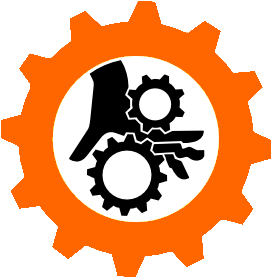

deleted by creator


deleted by creator


Depends on what kind of detector it is but alot of them use small amounts of radiation and a detector that triggers when the number of particles detected drops below some level.
That being the case any particulate large enough to interrupt the particles could cause it to go off.
For example high humidity misty water from a shower wafting over a detector placed over the bathroom door, etc.
Jeff should just be happy his name isn’t Kirk


And set the parking brake.
And put it in park.


Some areas have basic consumer protection. Such as a habitation must be fit to live in.
Renting out an apartment with 2 feet of water in it all times, or black mold, or no water or front door is often covered by specific legislation and then, if not, then by the consumer protection statutes.
Which may be the approach some lawyers will have to take if this gets bad enough.
“I can live in my apartment except for 5 weeks where I have to go someplace else” is what we may start seeing in future civil actions.


If the building becomes unlivable it’s an issue. high temps with high humidity can literally lead to heat stroke since no amount of fans will help since you literally can’t cool off even with sweating.
What that fix is, I’m not sure, but some buildings in areas of the south become ovens during heat waves and without AC people will get sick or die.


BwOoooOooOooooommmm-daaA-BwoooOoOoOooOomm-Dee-BwooowooOowOooWoOoooomMmMmMmMmmmmmm


And fluffle their feathers when they’re jonesing for caffeine.


How long before this shows up as a piracy meme on noncredibledefense?
And that’s the point of the game. It’s an art piece on the horrors of war.
A deep dark look at what war truly can be instead of the glorified way it’s often portrayed.
Heavy like This War of Mine and Papers Please


Yeah. You don’t mess with tree law. Since there’s no guarantee that the trees transported will take and it has to be done again.
The poisoned water way is a new twist on the old I’m an idiot who’s going to pay dearly for my hubris motif.

Like this Robot Chicken skit?


Interesting to see this one pop up again.
Steve Lehto did a good overview of this from a legal perspective
Especially the warrant argument. Dude was on parole, warrant would be an easy get instead of just being lazy.


That’s the issue. LLM’s aren’t trustworthy. They hallucinate.
I presume, as the default, that anything a LLM produces is a hallucination right out of the gate.


Hallucination thought does fit.
It’s a term in the context of a source that implies untrustworthy, not authoritative and/or imagined.
Lots of examples in every day usage or scenarios that come to mind.
“And then I saw the defendant punch the victim and then I was blinded by the sunlight”
Are you sure you didn’t hallucinate the entire episode? It was night after all.
Or
“Somebody please get these ants off of me”
Doctor writes: Hallucinations of ants on skin


There’s a psychological stress with work that can take some time to slough off.
Some people don’t want to log out of work and be grumpy or distracted during family time.
That being said having a process or system as a habit to denote work/home is a good alternative.
A 10 minute walk, a change of clothes, or some song you play, anything that creates a mental delineation. So the annoyance from that way too long meeting asking why something isn’t done (4 hours a day giving out status updates isn’t helping) doesn’t come out on the family.


Do you have 4 power strips? If not then just any kind of screw in clip for the wires themselves, zip ties for loose wiring, and something like this for the power strip should work.
Angry Karen Inner Monologue!
“I cast, I cast”.
I’m not announcing my spells anymore. You’ll find out what they are when they obliterate you!
Get out of the line!
John Pinette - Lines Drive Me Crazy